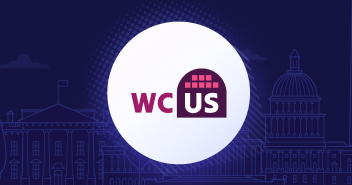When Steve Jobs talked about cloud computing back in 1997, most of us had no idea about its practical application or the impact it would have on our lives. Today, ALL businesses depend on the cloud one way or the other, for many day-to-day functions.
At Cloudways, we are passionate about all cloud technologies. Recently, United Parcel Service (UPS) introduced a Supply Chain Management (SCM) system to provide a more transparent monitoring process. Their new cloud-based service, UPS Order Watch, allows customers to collaborate with suppliers and easily manage their inbound supply chains.

Supply Chain Management Explained
As enterprises become more global, their supply chains become more complex. To understand this better, let’s get back to Steve Jobs and discuss how a revolutionary product such as the iPhone, is manufactured.
It is perceived that iPhones are designed in California, USA, and later manufactured in China by Foxconn. However, an article by Forbes tells a different story altogether. The truth is Foxconn only assembles the devices after getting parts from different parts of the world including Japan, Malaysia, and the US. However, in many parts of the world especially in Asia, logistics is a tricky business.
Current Issues in SCM:
A lack of robust transportation infrastructure in the Asia Pacific region, and a similar absence of reliable logistics data, further compounds this challenge, making any kind of reliable visibility into the supply chain a forlorn hope.
Also, there are numerous small and medium sized companies that might not have the capability to remain connected to one another. This turns a simple operation into a maze which supply chain managers tackle every day. They have to bring out creative solutions on the table, work with multiple partners, and cover the shortfalls in the supply line. All of this has to be done while keeping time and cost in mind.
Cloud Supply Chain Management Solutions:
Cloud supply chains can be the panacea to all of these challenges. With a sharp increase in internet usage in developing countries (especially through smartphones and tablets), supply chain managers can easily bring every stakeholder onboard and monitor the value chain on the go. Tracking, better known as ‘Visibility’ in the supply chain jargon, is the key issue in SCM and can easily be handled by cloud-based software.
UPS is not the only company that uses cloud technology to power its SCM. Most Fortune500 companies like Procter & Gamble, HP, and Pfizer have also adopted cloud-based supply chain management solutions. These solutions help track and manage global trade and logistics processes.
GT Nexus leads the way with its comprehensive, on-demand global supply chain management platform. Its multi-modal solutions are designed to help businesses manage inbound and outbound transportation flows. It provides control and visibility that is much needed by enterprises and transportation companies.
BT Global Service, in a similar way, has launched its own cloud-based software named BT Trace. It is tested and adapted by TNT Express, one of the largest parcel delivery companies in the world. BT Trace facilitates in providing real-time information about goods and assets moving along complex supply chains. Companies can securely collect and share this data with their partners and collaborators.
SAP is one of the bigwigs in the ERP (Enterprise Resource Planning) market. SAP SCM helps enterprises in adding flexibility to their supply network by providing multiple management and analytics tools. Be it mitigation strategies, streamlining communications or maintaining international standards, the software helps you cover all the major issues linked with supply chain.
Verdict:
Visibility in the supply chain has been a top priority in operational management. Cloud computing is significantly changing the landscape and proving to be a game-changer. Now businesses not only manage or monitor their supply chains but also create collaborative disaster-recovery and backup plans.
Mehdi KaramAli
Mehdi KaramAli worked as a Digital Content Producer for Cloudways. Apart from exploring new trends in the cloud, he keenly follows startups and is passionate about mountaineering.


